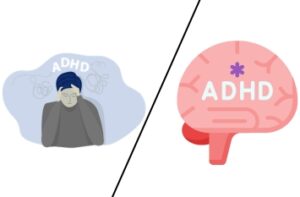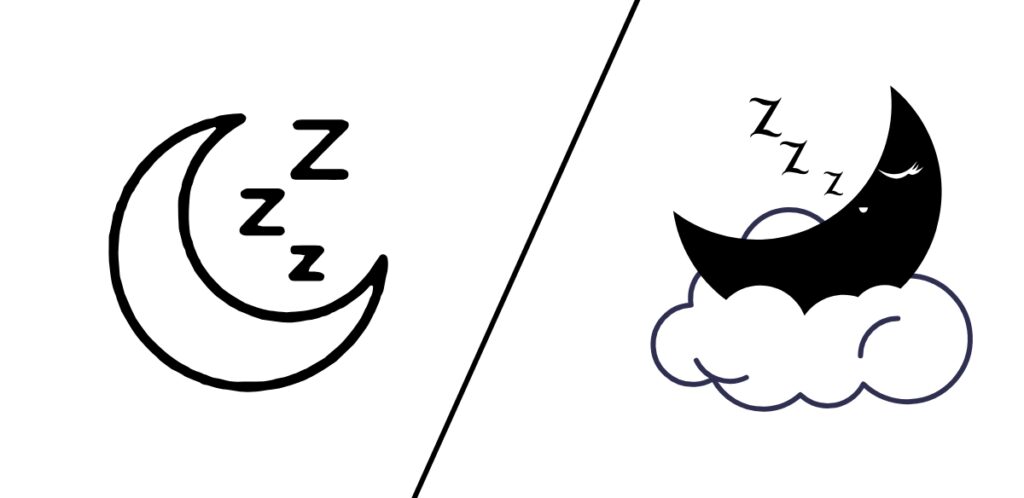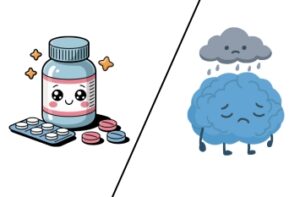
ADHD in Adults: Signs, Symptoms, and Treatment Options in Frisco, TX
ADHD in Adults: Signs, Symptoms, and Treatment Options in Frisco, TX Attention-Deficit/Hyperactivity Disorder, ADHD, is often thought of as a childhood condition, but millions of

When we sleep, the brain doesn’t just rest; it works tirelessly to perform a variety of essential functions. Emotional regulation, memory consolidation, and hormone balancing are just a few of the processes that occur during sleep. These functions are vital to maintaining mental health, as they help us manage stress, process emotions, and keep our thoughts balanced.
When sleep is inadequate, these processes are disrupted, which can lead to a range of mental health issues. Common disorders linked to poor sleep include:
Depression: Chronic lack of sleep can both contribute to and worsen feelings of sadness and hopelessness. The emotional regulation systems in the brain become less effective, making it harder to cope with negative thoughts and emotions.
Anxiety: Sleep deprivation can increase irritability and exacerbate feelings of worry or fear. Anxiety disorders, such as generalized anxiety disorder (GAD) and panic disorder, are often made worse by poor sleep.
Bipolar Disorder: Sleep disturbances in people with bipolar disorder can trigger manic or depressive episodes, making it difficult to maintain mood stability.
ADHD: Individuals with attention-deficit/hyperactivity disorder (ADHD) often struggle with both sleep issues and the inability to focus. Lack of rest can lead to difficulty concentrating and heightened impulsivity.
PTSD: Post-traumatic stress disorder (PTSD) often involves nightmares, disrupted sleep patterns, and heightened states of alertness. Poor sleep quality can exacerbate PTSD symptoms and impede recovery.
Even just a few nights of insufficient sleep can lead to increased irritability, heightened emotional reactions, and a diminished ability to cope with stress. For individuals with pre-existing mental health conditions, the impact of poor sleep can be especially severe, leading to worsened symptoms and difficulty managing their conditions.
Sleep disorders are not only a consequence of mental health issues, but they can also be a contributing factor. Some common sleep disorders that are closely linked to mental health include:
Insomnia is often a hallmark of anxiety and depression, with many people experiencing difficulty falling or staying asleep during periods of high stress. For some, insomnia is both a symptom of these conditions and a contributing factor that makes them worse.
Sleep apnea, characterized by interruptions in breathing during sleep, is commonly associated with fatigue, irritability, and cognitive impairments. It can also lead to more serious mental health issues, such as depression or anxiety, due to chronic tiredness and disturbed sleep.
As psychiatrists, we view sleep as a vital sign of your mental health. When assessing a patient, we often inquire about their sleep patterns and look for signs of sleep disturbances that could be linked to underlying psychiatric conditions. Typical questions we may ask include:
While each individual’s situation is unique, there are several steps that many of our patients find helpful in improving their sleep quality and supporting their mental health:
Maintain a consistent sleep schedule: Going to bed and waking up at the same time every day, even on weekends, can help regulate your body’s internal clock and improve sleep quality.
Avoid screens before bed: The blue light emitted by phones, tablets, and computers can interfere with the body’s production of melatonin, a hormone that helps regulate sleep. Try turning off screens at least an hour before bedtime.
Limit caffeine and heavy meals: Avoid consuming caffeine, alcohol, or large meals before bed, as these can disrupt sleep and lead to increased anxiety or restlessness.
Practice relaxation techniques: Deep breathing, progressive muscle relaxation, or guided meditation can help calm the mind and prepare the body for sleep.
Create an optimal sleep environment: A cool, dark, and quiet room is ideal for sleep. Consider using blackout curtains, earplugs, or white noise machines if you’re sensitive to light or sound.
Avoid alcohol and nicotine: Both substances can interfere with sleep cycles and lead to fragmented rest.
If you’ve been struggling with poor sleep that’s affecting your mood, focus, or ability to function during the day, it’s important to seek professional help. At Perfect Balance Psychiatric Services, we offer comprehensive mental health evaluations, which include sleep assessments, to help you uncover the root causes of your sleep problems. From there, we can work with you to develop a treatment plan that addresses both your sleep and mental health needs.
Sleep and mental health are deeply interconnected. Whether you’re dealing with insomnia, anxiety, or simply feeling mentally exhausted, addressing your sleep quality can lead to significant improvements in your overall well-being.
If you’re ready to take control of your mental health and sleep, our team at Perfect Balance Psychiatric Services is here to help you find balance and relief.
📍 Serving Frisco, TX and Surrounding Areas
💻 Online Psychiatric Appointments Available
📞 Call Now or Book Your First Appointment Today

ADHD in Adults: Signs, Symptoms, and Treatment Options in Frisco, TX Attention-Deficit/Hyperactivity Disorder, ADHD, is often thought of as a childhood condition, but millions of

When Medication Isn’t Enough: Exploring Advanced Depression Treatments in Frisco, TX Depression is a complex medical condition that affects mood, energy, motivation, sleep, and overall

Tele-Psychiatry in Frisco, TX: Convenient, Confidential Mental Health Care From Anywhere Mental health care should be accessible, flexible, and fit into your life—not add more
